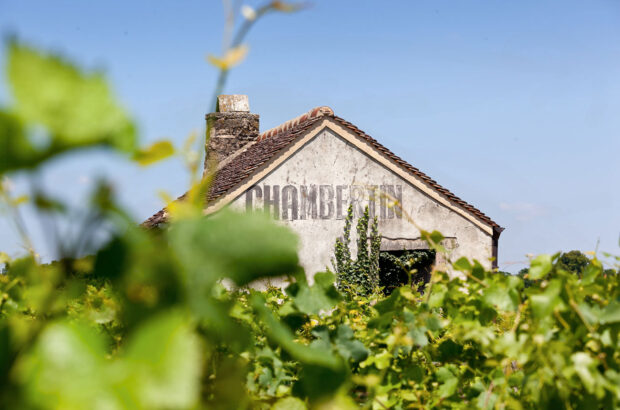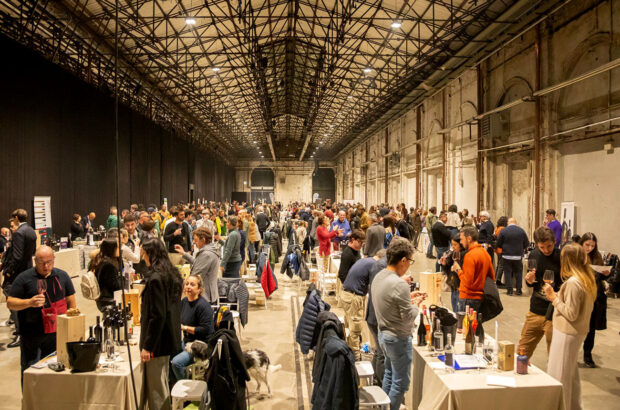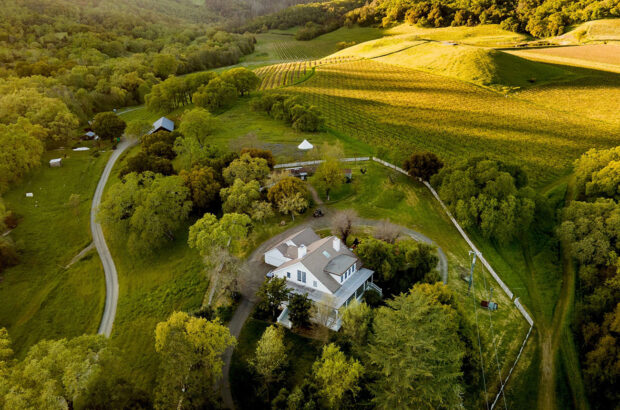The State vs the king of Beaujolais
On 4 July this year, the Tribunal de Villefranche-sur-Saône condemned the Société Les Vins Georges Duboeuf to a fine of t30,000 for ‘trickery and attempted trickery’. Even though this sum was tiny compared with the t187,000 that the prosecutor had reclaimed, Georges Duboeuf, the king of Beaujolais, is right to consider this a major and unjust slur on his reputation ‘It is not,’ said the 73-year-old, ‘in one’s 70s that one decides to be dishonest.’
The facts are simple: during the 2004 vintage, the cellar master at Lancie, one of Duboeuf’s vinification plants, had made an error in vinifying the grapes of two ‘crus’ together. He compounded this error by vinifying together two lots of grapes from different regions in the Beaujolais-Villages appellation. This was discovered during a routine control by the company to satisfy the regulation of the Services des Douanes et des Fraudes, which is little more than a tax office that monitors the movement of grapes and wine. The employee was immediately suspended and the Institut des Appellations Contrôlées (INAO) was informed. The decision was to block the wines for six months, authorising Duboeuf to declassify the 690hl of ‘crus’ into Beaujolais-Villages and the 1,300hl of Villages into Beaujolais. Although this represented less than 1% of the wines vinified and commercialised by Les Vins Georges Duboeuf, the financial loss was considerable, yet accepted as inevitable, due to employee error, by Duboeuf himself.
It should have ended there, except that the Villefranche procureur decided to make an example of the king of Beaujolais, who dominates the region in a way that not even Marcel Guigal dominates the northern Rhône. The case thus moved out of the hands of the Fraudes, the Douanes and the INAO into the hands of the Service Fiscale, known as le fisc.
(The venality of le fisc and its disregard for the proven honesty of those it pursues I know to my own cost. Having sold my wine-related businesses in Paris for a symbolic 1 franc (they weren’t doing very well) in 1988, I received a notification from the procureur of the 17ème arrondissement that the several million franc losses I had clocked up over the years had in fact been hidden profits, which I had spirited away to Switzerland, on which it was now claiming its slice, the bagatelle of £150,000. No proof I could offer to the contrary was accepted and after two years of debilitating defence, it was only when the fisc replied one day too late to my lawyer’s registered letter that its case was thrown out, the official in charge being demoted and sent to one of Paris’ outer suburbs.)
The king of Beaujolais had no such luck. Boosted by expectations of a hefty fine and positive publicity for their zeal, the Villefranche officials were congratulated. One even saw his position and salary upgraded at an official reception. The media latched onto L’Affaire Duboeuf with gusto, virtually all backing the probity of the man himself. The recently deceased René Renou, president of the INAO, offered to testify to this in court, as did critics Michel Bettane and Robert Parker and 3-star chefs Paul Bocuse and Pierre Troisgros. Marcel Guigal, when asked who he might like to have been, other than himself, replied ‘Dead, Napoléon; alive, Duboeuf’. The president of Inter Beaujolais wrote an official letter protesting that the case was bringing harm to his region. The Fédérations des Négociants de Bourgogne issued a statement that there was no fraud, therefore no case. The Tribunal de Villefranche and the Ministry of Justice have declined to comment.
https://www.decanter.com/wine-news/head-of-inao-rene-renou-dies-94012/
Why the fisc should attack the region’s most famous and successful négociant, who left school at 16 to sell his family’s Pouilly-Fuissé door to door, to become an international household name and an unquestioned force for good in the Beaujolais region, is truly a French Paradox. Duboeuf, however, encouraged by the superb quality the region produced in 2005 (see below) and another fine crop already on the vines, has decided to turn the page, to continue his 70-hour weeks and, especially, to pursue his recent project: to promote the wines made from the lovely Pierres Dorées region in the ‘bas’ Beaujolais under the name Gamay du Pays des Gaules. Nowhere else in the world, except on the limestone and granite slopes of the Beaujolais can Gamay produce such a pure, delicious and friendly wine. With 80hl/ha vin de pays yields it will sell at a very modest price. The vignerons of southern Beaujolais will survive and wine drinkers will be happy, all thanks to the king of Beaujolais.
Rated, as in Burgundy, as un grand classique, the purity and depth of fruit of Duboeuf’s 2005 is impressive and exciting. Côte de Brouilly (£7.99; ex-cellars) is sappy and savoury, Morgon Jean Descombes (£8.99; BWC) full bodied and fleshy, Juliénas Château des Capitans (£9.99; BWC) vibrantly robust with lush fruit, Fleurie La Madone (£9.99; BWC) feminine and floral, Clos des Quatre Vents (£9.99; BWC) serious and structured, Château du Grand Pré (£9.99; BWC) all polish and sophistication.







